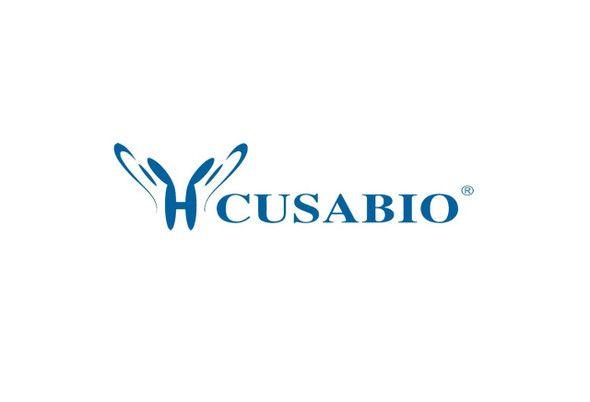Cusabio Human Recombinants
Recombinant Human RISC-loading complex subunit TARBP2 (TARBP2) | CSB-EP623007HU
- SKU:
- CSB-EP623007HU
- Availability:
- 13 - 23 Working Days
Description
Recombinant Human RISC-loading complex subunit TARBP2 (TARBP2) | CSB-EP623007HU | Cusabio
Alternative Name(s): TAR RNA-binding protein 2 Trans-activation-responsive RNA-binding protein
Gene Names: TARBP2
Research Areas: Microbiology
Organism: Homo sapiens (Human)
AA Sequence: MSEEEQGSGTTTGCGLPSIEQMLAANPGKTPISLLQEYGTRIGKTPVYDLLKAEGQAHQPNFTFRVTVGDTSCTGQGPSKKAAKHKAAEVALKHLKGGSMLEPALEDSSSFSPLDSSLPEDIPVFTAAAAATPVPSVVLTRSPPMELQPPVSPQQSECNPVGALQELVVQKGWRLPEYTVTQESGPAHRKEFTMTCRVERFIEIGSGTSKKLAKRNAAAKMLLRVHTVPLDARDGNEVEPDDDHFSIGVGSRLDGLRNRGPGCTWDSLRNSVGEKILSLRSCSLGSLGALGPACCRVLSELSEEQAFHVSYLDIEELSLSGLCQCLVELSTQPATVCHGSATTREAARGEAARRALQYLKIMAGSK
Source: E.coli
Tag Info: N-terminal GST-tagged
Expression Region: 1-366aa
Sequence Info: Full Length
MW: 66 kDa
Purity: Greater than 90% as determined by SDS-PAGE.
Relevance: Required for formation of the RNA induced silencing complex (RISC). Component of the RISC loading complex (RLC), also known as the micro-RNA (miRNA) loading complex (miRLC), which is composed of DICER1, AGO2 and TARBP2. Within the RLC/miRLC, DICER1 and TARBP2 are required to process precursor miRNAs (pre-miRNAs) to mature miRNAs and then load them onto AGO2. AGO2 bound to the mature miRNA constitutes the minimal RISC and may subsequently dissociate from DICER1 and TARBP2. May also play a role in the production of short interfering RNAs (siRNAs) from double-stranded RNA (dsRNA) by DICER1. Binds to the HIV-1 TAR RNA which is located in the long terminal repeat (LTR) of HIV-1, and stimulates translation of TAR-containing RNAs. This is achieved in part at least by binding to and inhibiting EIF2AK2/PKR, thereby reducing phosphorylation and inhibition of EIF2S1/eIF-2-alpha. May also promote translation of TAR-containing RNAs independently of EIF2AK2/PKR.
Reference: "Characterization of a human TAR RNA-binding protein that activates the HIV-1 LTR." Gatignol A., Buckler-White A.J., Berkhout B., Jeang K.T. Science 251:1597-1600(1991)
Storage: The shelf life is related to many factors, storage state, buffer ingredients, storage temperature and the stability of the protein itself. Generally, the shelf life of liquid form is 6 months at -20?/-80?. The shelf life of lyophilized form is 12 months at -20?/-80?.
Notes: Repeated freezing and thawing is not recommended. Store working aliquots at 4? for up to one week.
Function: Required for formation of the RNA induced silencing complex (RISC). Component of the RISC loading complex (RLC), also known as the micro-RNA (miRNA) loading complex (miRLC), which is composed of DICER1, AGO2 and TARBP2. Within the RLC/miRLC, DICER1 and TARBP2 are required to process precursor miRNAs (pre-miRNAs) to mature miRNAs and then load them onto AGO2. AGO2 bound to the mature miRNA constitutes the minimal RISC and may subsequently dissociate from DICER1 and TARBP2. May also play a role in the production of short interfering RNAs (siRNAs) from double-stranded RNA (dsRNA) by DICER1. Binds to the HIV-1 TAR RNA which is located in the long terminal repeat (LTR) of HIV-1, and stimulates translation of TAR-containing RNAs. This is achieved in part at least by binding to and inhibiting EIF2AK2/PKR, thereby reducing phosphorylation and inhibition of EIF2S1/eIF-2-alpha. May also promote translation of TAR-containing RNAs independently of EIF2AK2/PKR.
Involvement in disease:
Subcellular Location: Cytoplasm, Cytoplasm, perinuclear region, Nucleus
Protein Families: TARBP2 family
Tissue Specificity:
Paythway:
Form: Liquid or Lyophilized powder
Buffer: If the delivery form is liquid, the default storage buffer is Tris/PBS-based buffer, 5%-50% glycerol. If the delivery form is lyophilized powder, the buffer before lyophilization is Tris/PBS-based buffer, 6% Trehalose, pH 8.0.
Reconstitution: We recommend that this vial be briefly centrifuged prior to opening to bring the contents to the bottom. Please reconstitute protein in deionized sterile water to a concentration of 0.1-1.0 mg/mL.We recommend to add 5-50% of glycerol (final concentration) and aliquot for long-term storage at -20?/-80?. Our default final concentration of glycerol is 50%. Customers could use it as reference.
Uniprot ID: Q15633
HGNC Database Link: HGNC
UniGene Database Link: UniGene
KEGG Database Link: KEGG
STRING Database Link: STRING
OMIM Database Link: OMIM









